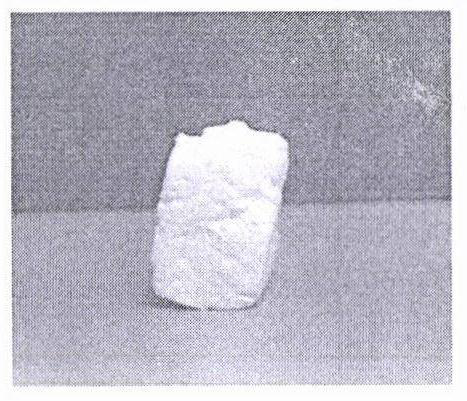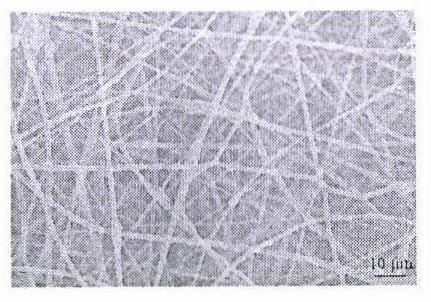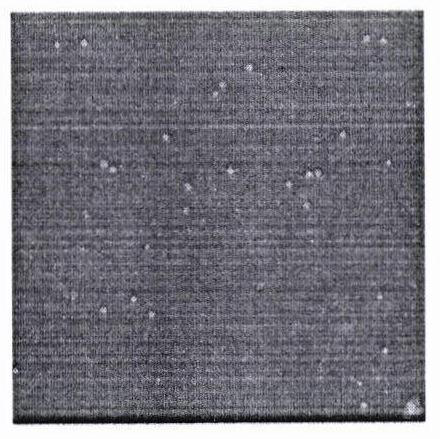Silkworm cocoon imitating support and preparation method and application thereof
A silkworm cocoon and solution technology, applied in the field of silkworm cocoon scaffolds, can solve the problems of inability to combine cell preservation with cell therapy, restrict the direct application of resuscitated cells, reduce the effect of cell cryopreservation, etc., achieve high safety and effectiveness, and promote adhesion. and growth, high cell viability
- Summary
- Abstract
- Description
- Claims
- Application Information
AI Technical Summary
Problems solved by technology
Method used
Image
Examples
Embodiment 1
[0031] (1) Cut the silkworm cocoons into small pieces, and boil them with a 0.02M sodium carbonate solution prepared with deionized water. Boil for 1 hour, separate the supernatant and undissolved matter, wash the undissolved matter with water, 3 times, 20 minutes each time. After drying, put it into lithium bromide solution (9.3M) at a ratio of 1:50 (g / mL) and place it at 60°C for 4 hours. After dissolution, the solution turned clear amber. Dialysis (M w 12000) for 2 days, 9000rpm, centrifuge for 20 minutes, discard the precipitate, and freeze-dry for 3 days to obtain silk fibroin.
[0032] (2) supernatant in step (1) is dialyzed in water (M w 12000) for 2 days, remove the sodium carbonate solution, freeze-dry and collect to obtain sericin.
[0033] (3) The silk fibroin prepared in step (1) is dissolved in hexafluoroisopropanol to make a solution of 7.5% w / v
[0034] (4) Add 5% w / w polyalanine to the solution prepared in step (3) and stir for 4 hours.
[0035] (5) Add...
Embodiment 2
[0040] The neutrophils were co-cultured with the imitation silkworm cocoon scaffold prepared in Example 1 for 30 minutes, and 1 mL of cell freezing solution was used to replace the medium and transferred to a cryopreservation tube. Then, the cryovials were placed in a freezer box (Nalgene, at a freezing rate of 1°C / min in a -80°C freezer) overnight, and then stored in liquid nitrogen for 2 days. After resuscitating in a water bath at 37°C, the cells were digested and collected, and the cells were stained with a live dead cell staining kit. The experimental results showed that the proportion of living cells was 69% ( image 3 ).
Embodiment 3
[0042] Human umbilical cord blood mesenchymal stem cells were co-cultured with the imitation silkworm cocoon scaffold prepared in Example 2 for 30 minutes, and 1 mL of cell freezing solution was used to replace the culture medium and transferred to a cryopreservation tube. Then, the cryovials were placed in a freezer box (Nalgene, at a freezing rate of 1°C / min in a -80°C freezer) overnight, and then stored in liquid nitrogen for 2 days. After resuscitating in a water bath at 37°C, the cells were digested and collected, and the cells were stained with a live dead cell staining kit. The experimental results showed that the proportion of living cells was 90.9%.
PUM
 Login to View More
Login to View More Abstract
Description
Claims
Application Information
 Login to View More
Login to View More - R&D
- Intellectual Property
- Life Sciences
- Materials
- Tech Scout
- Unparalleled Data Quality
- Higher Quality Content
- 60% Fewer Hallucinations
Browse by: Latest US Patents, China's latest patents, Technical Efficacy Thesaurus, Application Domain, Technology Topic, Popular Technical Reports.
© 2025 PatSnap. All rights reserved.Legal|Privacy policy|Modern Slavery Act Transparency Statement|Sitemap|About US| Contact US: help@patsnap.com



